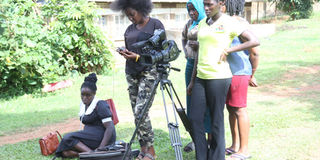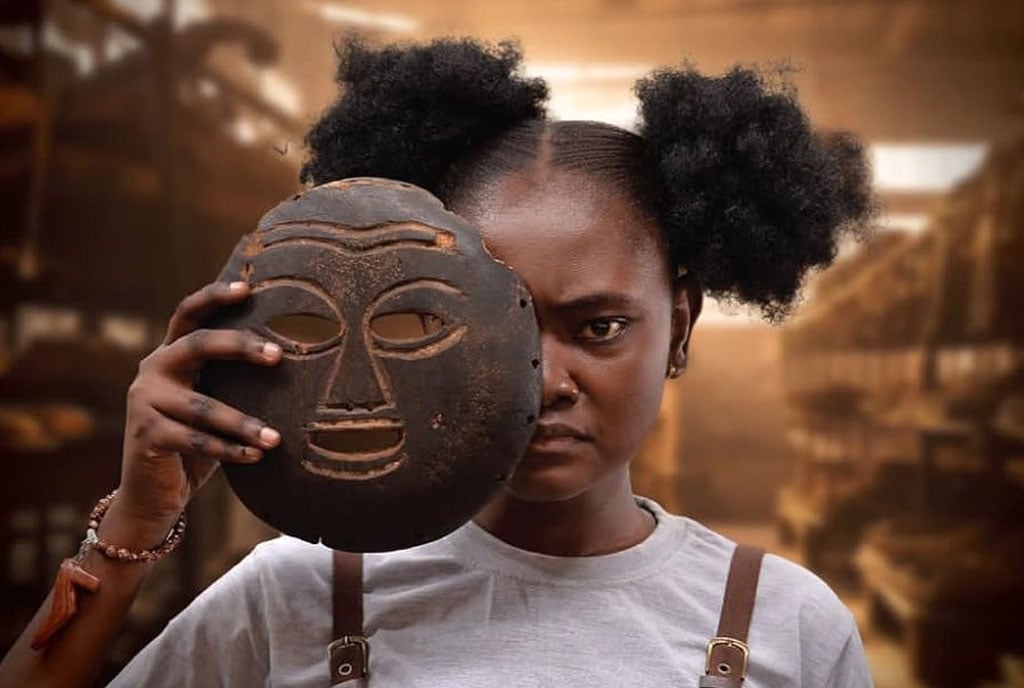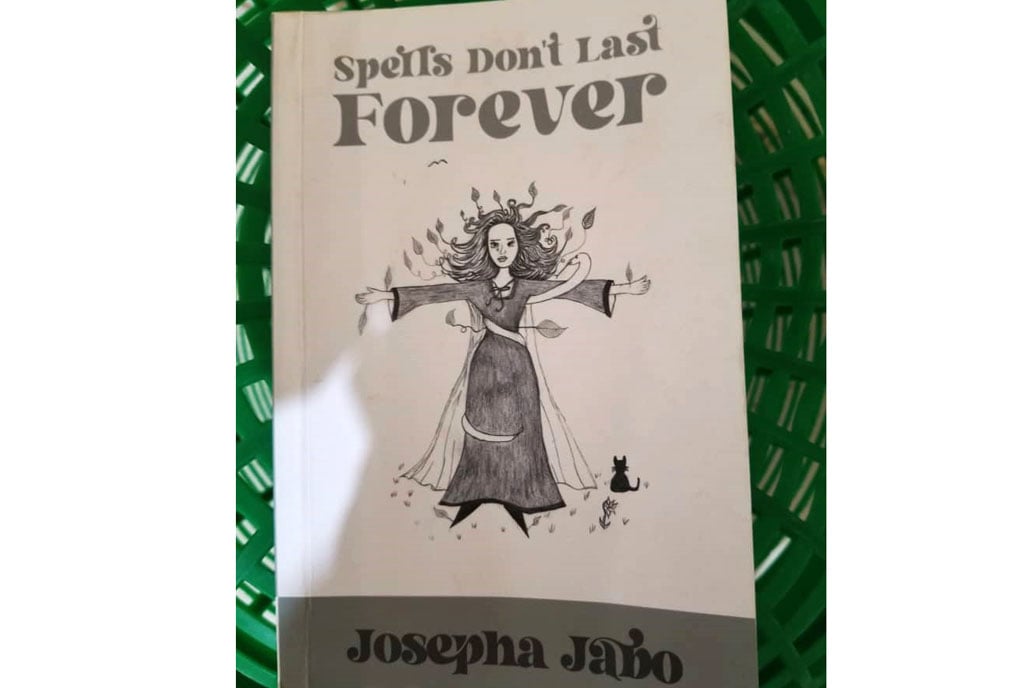
Students during a filming session. After the course, films are produced which they use to showcase to others with the hope that they get interested in joining the film industry. Below: Filming a studio session PHOTO/JOAN SALMON
From Queen of Katwe, The Girl in the Yellow Jumper, The Last King of Scotland, Who Killed Captain Alex, Uganda continues to make strides in film production. However, Uganda is miles away from Nollywood, Bollywood and centuries from Hollywood.
That is why Mr Andrew Nyombi and Mr Kawooya Biwedde feel that it is a clarion call to lay a brick to what those before them have placed on the film industry through training.
After graduating in 2013, the duo attended a documentary film training course at the University of Cape Town, South Africa through the Africa Filmmakers Fellowship powered by the Bosch Alumni network and Ford Foundation in 2017.
“The opportunity came because of our cinema background from Kampala Film School. After the course, we thought it would be important to share the knowledge we received with other fellow Ugandans,” Mr Kawooya says.
Although they did not have money to start a film school, they used the available resources, leaning on the gained knowledge to train students.
“We believe that since film is visual communication, it would benefit many others. Therefore, through our film production company, we initiated OLa Film Foundation(OFF), an organisation specifically to train students using the company proceeds under that umbrella,” he adds.
The offering includes filmmaking, creative sound, editing (post-production), cinematography, TV production and photography. These courses span three months, six months, a year and two years, all of which lead to awards of certificate of attendance. The first cohort started in 2020 during the Covid-19 pandemic and over 25 students have been trained and have produced over five Movies.
Mr Nyombi says the programme is important because it offers valuable knowledge and practical skills to students that will benefit their lives and professional careers. “It provides an opportunity for them to delve deeper into practical work in their chosen field of study. They also gain a deeper understanding of storytelling and equipment used in filmmaking,” he says.
Mr Kawooya says the response was good when they made a call to students, though many were limited with tuition charges and hence a lower-than-expected turn-up. Therefore, they opted to do it free of charge as a way to give back to the community as had been done for them.
However, they soon realised that being free meant the students did not own the course. “Many students came as and when they felt like, which disturbed the course flow. This prompted us to introduce commitment fees. That way, it would be sustainable and students would become more dedicated because they would have invested in themselves,” he added.
The commitment fees are Shs1m for a three-month course for both beginner and advanced courses.
“We intend to increase the training coverage by extending campuses to different areas of the country. Additionally, we intend to put up hostels for those coming from far away,” Mr Kawooya says.
After the course, films are produced which they use to showcase to others with the hope that they get interested in joining the film industry.
Mr Nyombi says he trains the students to start working at OLa Visualz but they can always get better offers. “We always share their contacts with those in the field in line with what they have specialised in,” he says.
Their scope of work also expanded to KSTV, where they manage the production for the television station on behalf of Ps Solomon Mwesige, the proprietor.
Owing to that, they have since moved from Lukuli, Makindye Division to Bulenga, Wakiso District.

Chris Kiiza joined OLa Film Foundation in May 2020
Chris kiiza
Chris Kiiza joined OLa Film Foundation in May 2020 and at that time, he was out of work hence choosing to do something else with life.
“I was inspired to join by a friend who was doing film. Though it was Covid-19, I was able to attend because the school was in my neighbourhood. Additionally, as one doing motivation speaking, I thought this would help take my dream to a new level,” he says.
At the institution, Mr Kiiza learned film directing, editing, photography, and videography. However, he says his breakthrough course was sound recording.
“For some time, the school’s sound recordist was absent so I proposed that I could try. Thankfully, I was given the opportunity. A month later, people from Pearl Magic were interested in our instructor for a job with the Prestige project but he nominated me. I started with them from season one to its end and then joined another project, Beloved. The beauty about the course is that it was practical thus making it easy to transition to the workplace,” he says.
Mr Kiiza says they had also learned how to handle equipment and all this came in handy in the marketplace. Earning Shs3m per month was a dream come true, enabling him to buy his equipment. “I always go back to the foundation to teach the students and I do it free of charge as my way of giving back having learned for free,” he says.

Eve Omali joined for a three-month course and says it was a good experience.
Eve omali
Eve Omali joined for a three-month course and says it was a good experience.
“On joining, my eyes were on film directing. However, I also learned cinematography, and how to use a camera, lighting, and sound recording. The cost was Shs650,000 but I feel that for what I learned, coupled with the facilitation, I got more than I paid for,” she says.
Ms Omali is also thankful that when the team got jobs, she was taken along which gave me a workplace feel.
“I was mentored by people who had been in the industry for some time. They allowed us to get on set to experience the challenges and then advised us on how to go about them. That prepared me for the workspace because I knew what to expect,” she says.
After the course, Ms Omali worked at the foundation for a while until she got a job in 2022 at Amani Production House on a TV series- Damalie, a DSTV-commissioned show. Though she earns a commission, Ms Omali says it is good. She adds that the film industry is open for young girls and everyone is trying to empower them. “There are not many girls in the industry and I encourage more girls to join,” she says. While film production work is not that plentiful, Ms Omali says one can earn Shs100,000 per day. It could be a workshop or a birthday gig.









